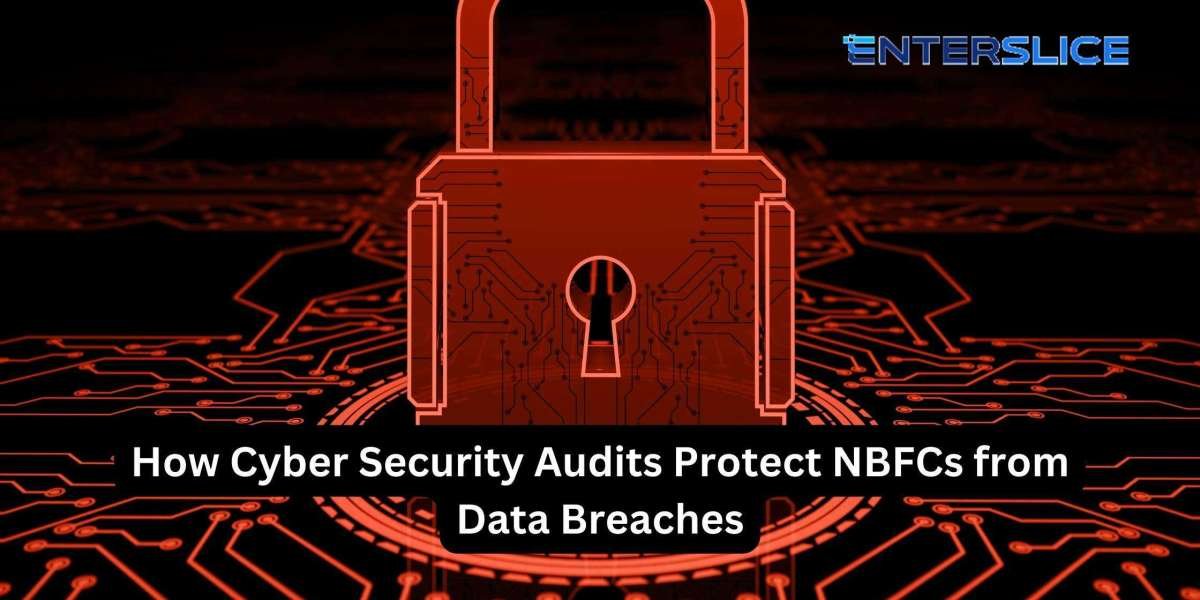In today's fast-paced digital world, Non-Banking Financial Companies (NBFCs) are increasingly relying on technology to provide seamless financial services. However, with this digital shift comes the challenge of safeguarding sensitive customer data from cyber threats. Data breaches are a constant risk for businesses across industries, and NBFCs are no exception. Cybersecurity is critical, not only to protect sensitive financial data but also to maintain customer trust and comply with regulatory requirements. In this blog, we will explore how NBFC Cyber Security Audits play a pivotal role in preventing data breaches and ensuring the safety of financial information.
Understanding the Importance of Cyber Security for NBFCs
Non-Banking Financial Companies deal with vast amounts of sensitive information, including financial records, loan applications, credit histories, and personal details of clients. The breach of any of this data can lead to significant financial losses, damage to reputation, and severe regulatory consequences.
As the regulatory landscape tightens with more stringent norms from bodies like the Reserve Bank of India (RBI) and the Securities and Exchange Board of India (SEBI), the pressure on NBFCs to maintain robust cybersecurity practices has increased. A breach or failure to meet compliance requirements can lead to legal penalties, loss of business, and in extreme cases, shutdowns.
What is an NBFC Cyber Security Audit?
An NBFC Cyber Security Audit is a comprehensive evaluation of the company's technology infrastructure, data protection protocols, and overall cybersecurity policies. It identifies vulnerabilities in the system that could potentially lead to breaches and outlines measures to mitigate these risks. Regular audits ensure that NBFCs are equipped with the latest security protocols and are compliant with industry standards.
How NBFC Cyber Security Audits Prevent Data Breaches
- Identifying Vulnerabilities Early
Cybersecurity audits help in identifying vulnerabilities in a company’s IT infrastructure before malicious actors can exploit them. Whether it’s outdated software, weak encryption, or inadequate access control, a cybersecurity audit helps pinpoint areas where security is lacking.
For example, an NBFC that audits its data protection systems regularly can uncover security gaps in its loan management system, preventing hackers from infiltrating and accessing sensitive customer data.
- Assessing Data Protection Policies
Data protection policies form the backbone of cybersecurity efforts. A well-structured audit reviews how sensitive information is handled, stored, and transferred across the NBFC's systems. This includes checking encryption protocols, authentication procedures, and internal access control measures to ensure they meet industry standards.
Many NBFCs overlook internal threats, such as employees who may intentionally or unintentionally expose sensitive data. Cybersecurity audits focus on these risks and suggest the implementation of better policies to mitigate internal and external threats.
- Strengthening Compliance with Regulatory Requirements
The RBI and SEBI impose stringent guidelines on NBFCs regarding data protection and cybersecurity. A regular cybersecurity audit ensures that an NBFC is compliant with these evolving regulations. Non-compliance can lead to fines, legal consequences, and loss of business, which can be prevented by conducting regular audits and addressing gaps proactively.
For example, under the RBI’s IT Framework, NBFCs are expected to have secure systems in place to protect customer information from cyber-attacks. A cybersecurity audit ensures that these systems are robust, up to date, and compliant with the regulations set forth by RBI.
- Improving Incident Response and Recovery Plans
Even with the best cybersecurity practices in place, no system is completely invulnerable. A well-conducted audit ensures that the NBFC has an effective incident response and recovery plan in case of a breach. It evaluates how quickly the company can detect, contain, and recover from a cyberattack, minimizing the damage caused by potential data breaches.
Having a quick response strategy in place ensures that the impact on business operations is minimized, and data is restored to its original state, which can prevent prolonged business disruptions and financial losses.
- Ensuring Safe Transactions and Data Transfers
A cybersecurity audit also assesses the safety of transactions and data transfers between the NBFC and its customers. With financial services being increasingly offered online, it’s essential to secure these transactions against potential threats. By implementing secure protocols such as encryption and multi-factor authentication, NBFCs can protect their clients' financial data.
Regular audits ensure that these security measures are being implemented correctly and that no unauthorized individuals are able to intercept data transfers.
The Long-Term Benefits of NBFC Cyber Security Audits
- Customer Trust: A robust cybersecurity framework helps build and maintain customer trust. Clients are more likely to engage with an NBFC that has strong cybersecurity protocols in place to protect their financial data.
- Regulatory Compliance: Regular audits ensure compliance with evolving regulatory requirements, helping NBFCs avoid fines and legal actions.
- Reputation Management: Data breaches can cause irreversible damage to an NBFC’s reputation. A cybersecurity audit can help prevent breaches, ensuring that the company maintains a positive public image.
- Reduced Financial Risk: By identifying and addressing vulnerabilities early, an NBFC can avoid costly cyber-attacks that could drain financial resources.
Conclusion
Cybersecurity audits play a vital role in protecting NBFCs from data breaches, ensuring that financial institutions comply with industry regulations, and maintaining customer trust. With increasing cyber threats and evolving regulatory norms, it is crucial for NBFCs to prioritize cybersecurity audits to safeguard their operations and customers.
By performing regular NBFC Cyber Security Audits, businesses can not only protect themselves from potential data breaches but also strengthen their overall cybersecurity framework, ensuring smooth and secure operations in the financial sector.
FAQs
1. How often should an NBFC conduct a cybersecurity audit?
It is advisable for an NBFC to conduct a cybersecurity audit at least once a year or whenever there is a significant change in their IT systems or operations.
2. Can cybersecurity audits help NBFCs comply with RBI regulations?
Yes, cybersecurity audits ensure that an NBFC’s data protection practices meet the RBI’s IT framework and other regulatory requirements.
3. What are the key components of an NBFC Cyber Security Audit?
The key components include vulnerability assessment, risk management evaluation, data protection policies, internal control systems, and compliance with regulatory requirements.
Also, read:
Why is Legal Support Necessary for NBFC?












